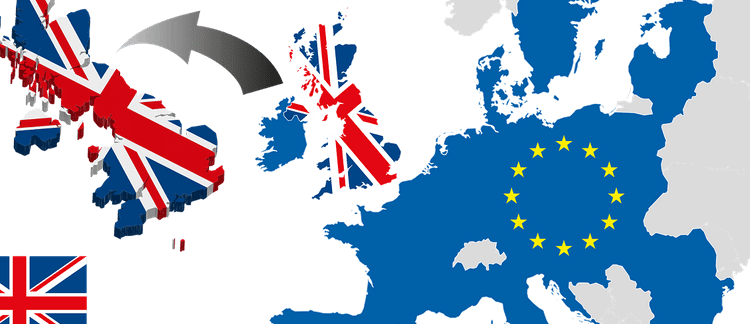Scientists Predict The Fate of Research After Brexit

Brexit refers to Britain’s decision to leave the European Union (EU). Though it is a political decision, it has implications on other areas as well. Not only the economy, Brexit will also affect free movement within Europe, and also research. Let us learn some more about how the scientists predict the fate of research after Brexit comes into effect.
The Fate of Research After Brexit
The European Union supports a research funding scheme called Horizon 2020. British researchers have been using Horizon 2020 to fund their research. Horizon 2020 promotes collaboration involving at least one member of the EU. A lot of important research has been supported by the almost €80 billion funding scheme such as the identification of the Higgs boson, exoplanets, and gravitational waves.
Brexit will affect how (or if) Britain will be able to participate in Horizon 2020. It will also negatively affect free movement of researchers in to and out of Britain. Elsevier and Ipsos MORI conducted a global survey to find out how researchers think Brexit will affect them.
The Elsevier-Ipsos MORI Survey
The Elsevier Ipsos MORI survey was conducted online. There were 2,170 participants – 1,242 from the UK, 452 from the EU, and 476 from the rest of the world. The results are available in the form of an online report. Overall, researchers thought that Brexit would be bad for research. The majority of British scientists (69%) feel that Brexit will be bad for the EU in general. Almost half (40%) of British researchers say they are already getting fewer requests for collaboration since the announcement of Brexit. About 39% of British researchers have seen an increase in the number of their EU colleagues leaving the UK. These results reflect the negative impact that Brexit may have on science and research.
The Other Surveys And What They Reveal
Irish researchers are also concerned about the effects of Brexit. The Royal Irish Academy (RIA) conducted a similar survey. The results of the survey showed that majority of Irish academics feel Brexit will negatively affect higher education. The Irish were largely in support of maintaining the Common Travel Area. The Common Travel Area allows for free movement of citizens between Ireland, Northern Ireland, and the UK.
Many researchers (77%) felt that Brexit would also impact North-South collaborations within Ireland. The majority of those surveyed (79%) stated that collaborations with the UK were important in their field. About one-third of researchers felt that Brexit would be good for Ireland. This would be because Brexit would reduce competition among the countries for Horizon 2020 grants. They also feel it would make it easier to attract researchers to come to their countries, who would have probably gone to Britain instead.
Some Say That Brexit Will Have Positive Effect On Research
There are scientists who support Brexit and think that the effects will not be all bad. If Britain chooses to become an associate member of the EU, their researchers can still apply for EU funding. Associate EU members must first have to pay a lump sum, however. Some actually argue that scientists and engineers who want to work in the UK would still qualify for visas. They think that in this way Brexit may not affect freedom of movement. Matt Ridley, from the Science and Technology Committee of the House of Lords, thinks that Brexit will encourage more international collaborations outside of Europe.
What Researchers Want
The Elsevier Ipso MORI survey also identified what steps the researchers want the government to take. UK scientists want to maintain access to funding, free movement of researchers, and international collaborations even after Brexit. Researchers want to be able to access alternative sources of funds after Brexit. Ideally, 78% of those surveyed want the EU to continue to allow UK researchers access the Horizon 2020. More than half of researchers would support creating a global research body similar to the European Research Council.
Scientists are also concerned about freedom of movement. Almost all UK researchers (90%) want the government to ensure free movement for Europeans who want to work in the UK. This view is strongly supported by European (80%) and non-European (70%) scientists. About 72% of researchers want simpler visa and British citizenship applications for EU researchers.
Do you think that Brexit will harm UK researchers? Will leaving the European Union actually improve collaborations with other regions of the world? How should the UK government help its researchers post-Brexit? Please share your thoughts in the comments section below.









